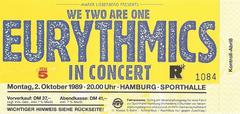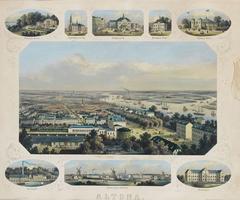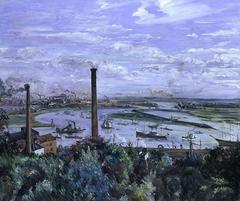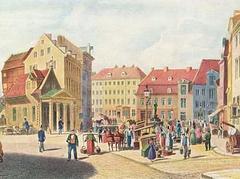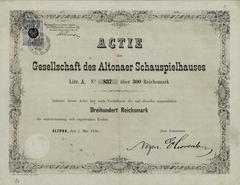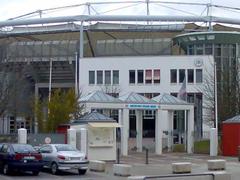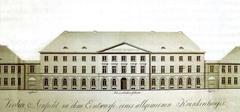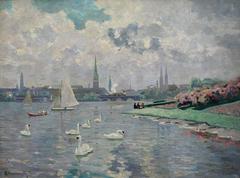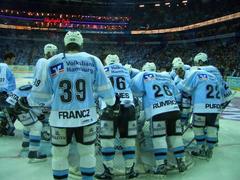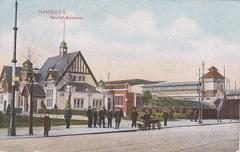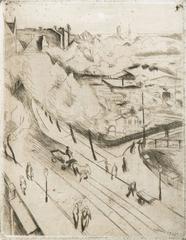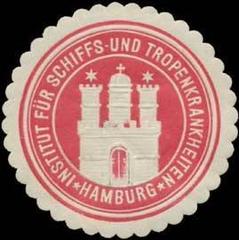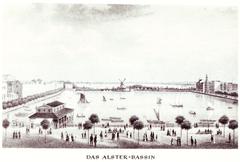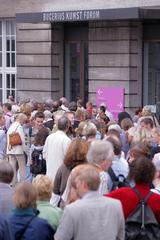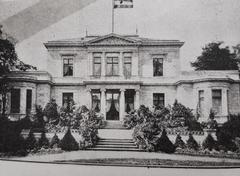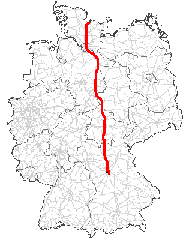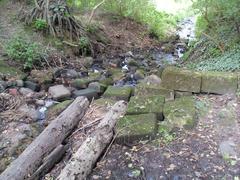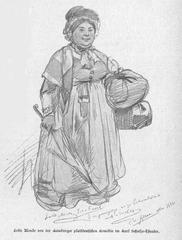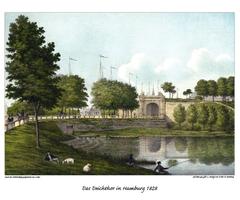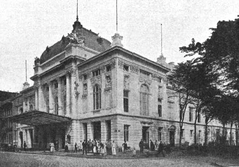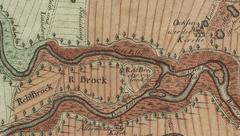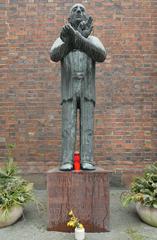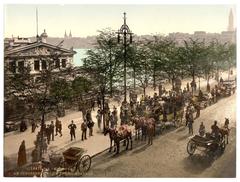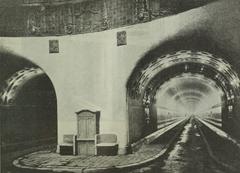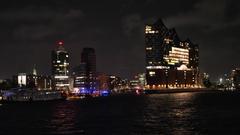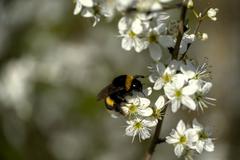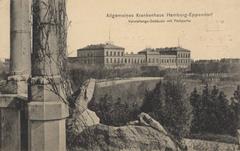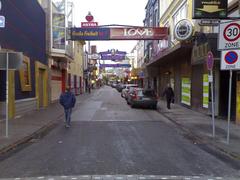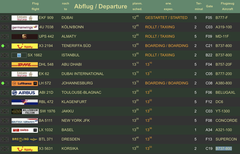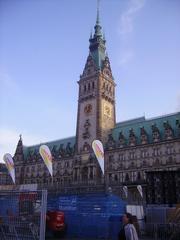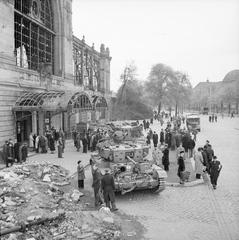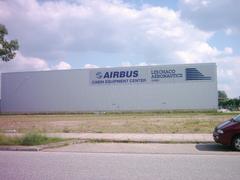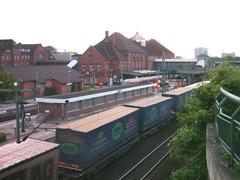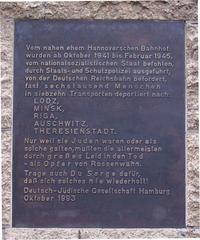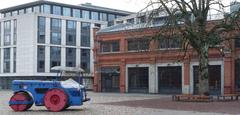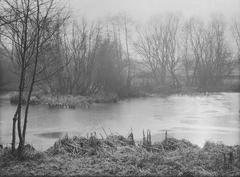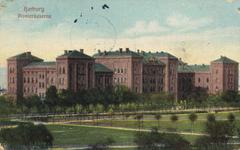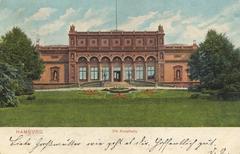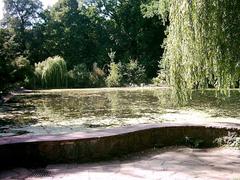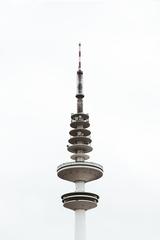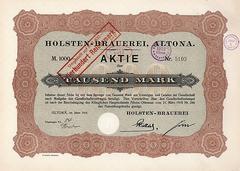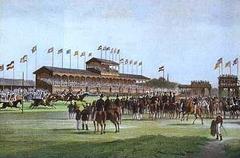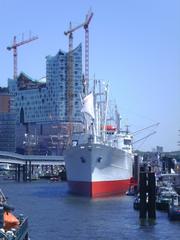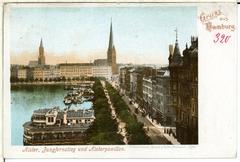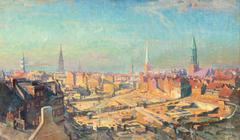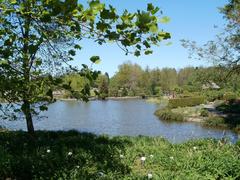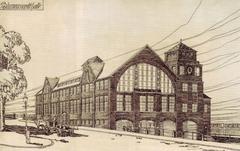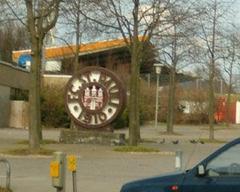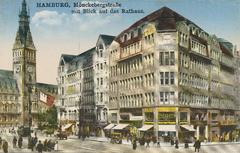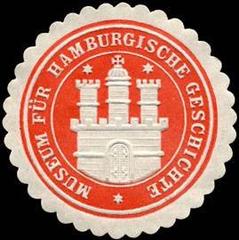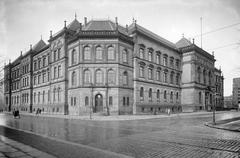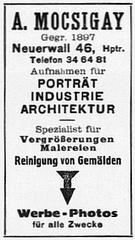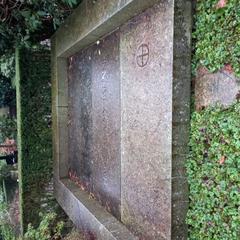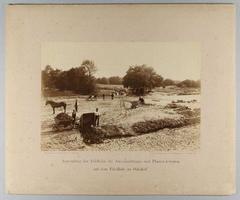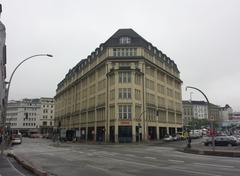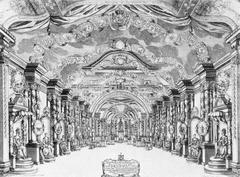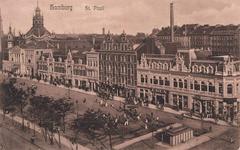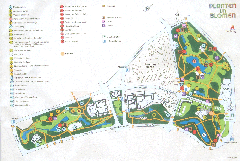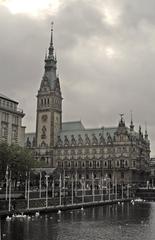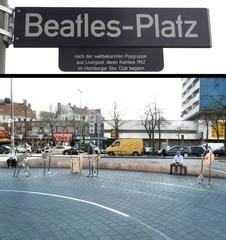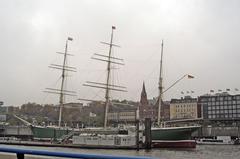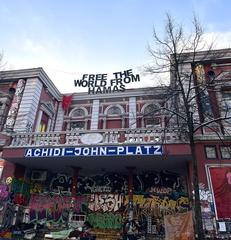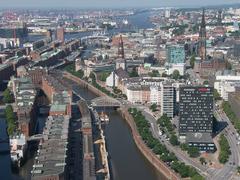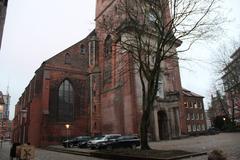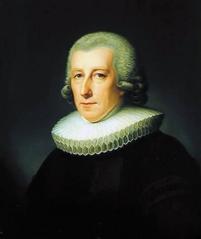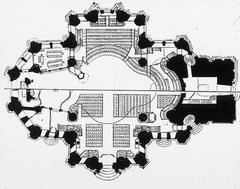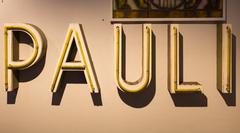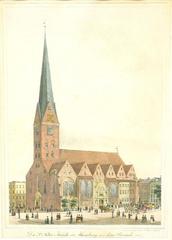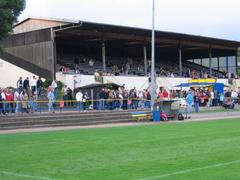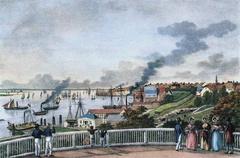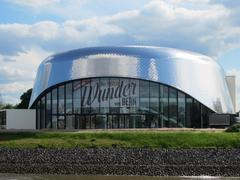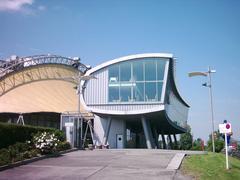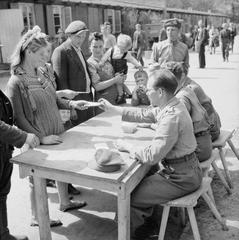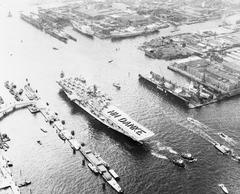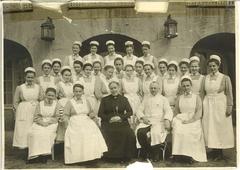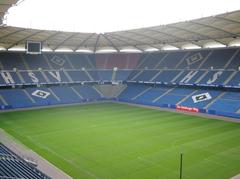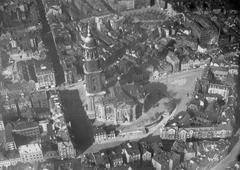
Niendorf Nord Visiting Hours, Tickets, and Hamburg Historical Sites Guide
Date: 04/07/2025
Introduction to Niendorf Nord: What Visitors Can Expect
Nestled in Hamburg’s northwestern quarter, Niendorf Nord is a lively district that seamlessly blends history, culture, and community vibrancy. Once a rural village dating to the Middle Ages, Niendorf Nord evolved dramatically in the 20th century, especially after being incorporated into Hamburg in 1937 and responding to post-war urban needs. Today, it is celebrated for its functional architecture, abundant green spaces, and excellent transport links—including the U2 subway line extension in 1991.
Visitors to Niendorf Nord will find a district that reflects Hamburg’s urban planning ethos—sustainability, inclusivity, and accessibility—while offering historical landmarks like the neo-Gothic Niendorf Church and the baroque Evangelisch-Lutherische Kirche am Markt. The bustling Tibarg shopping street and community festivals such as Tibargfest further illustrate the area’s vibrant spirit. Whether your interests are urban history, local events, or family-friendly recreation, Niendorf Nord provides a microcosm of Hamburg’s broader cosmopolitan character. This guide delivers a comprehensive overview of Niendorf Nord’s history, attractions, visitor information, accessibility, and travel tips for a rewarding visit (hamburg.com, tibarg.de, hamburg-tourism.de).
Table of Contents
- Exploring Niendorf Nord: History, Attractions, and Visitor Tips
Exploring Niendorf Nord: History, Attractions, and Visitor Tips
Niendorf Nord is distinguished by its post-war urban design, green corridors, and robust community life. This section outlines the district’s historical progression, primary attractions, and essential tips for visitors.
Historical Overview
Early History & Integration into Hamburg
Originally a medieval farming community, Niendorf remained largely rural until the 20th century. The 1937 Greater Hamburg Act integrated Niendorf into the city, setting the stage for its transformation as Hamburg expanded outward to accommodate population growth.
Post-War Urban Development
World War II left Hamburg with a critical housing shortage. In response, the city developed new residential districts on its outskirts, including Niendorf Nord. The 1960s-70s brought a surge in construction, guided by principles of self-contained neighborhoods with green spaces, modern infrastructure, and accessible public transit (hamburg.com).
1960s–1980s: The Rise of Niendorf Nord
During this period, mid- and high-rise apartment complexes were built, emphasizing:
- Separation of pedestrian and vehicular zones
- Integrated green spaces and parks
- Proximity to public transport, especially with the U2 line extension in 1991
The Tibarg shopping street emerged as a commercial and social nucleus, hosting events like the annual Tibargfest (tibarg.de).
Social & Demographic Evolution
Niendorf Nord’s population has long been diverse, comprising families, professionals, and increasingly, international residents. Social infrastructure—schools, sports facilities, and healthcare centers—was established alongside housing, fostering inclusivity and community.
Urban Development & Modernization
Planning Principles
Niendorf Nord mirrors Hamburg’s focus on:
- Mixed-use development: blending residential, commercial, and recreational spaces
- Sustainable, green city design: preserving parks and open areas
- Barrier-free access: prioritizing accessibility for all residents and visitors (hamburg.com)
Recent & Ongoing Projects
- Housing modernization: Improving energy efficiency and accessibility
- Expanded social infrastructure: New schools and healthcare facilities
- Public transport enhancement: Reliable U2 subway service connects Niendorf Nord to central Hamburg (hamburg-tourism.de)
Community Life & Events
Annual events, notably Tibargfest each July, transform the district, while weekly markets at Nordalbingerweg/Ernst-Mittelbach-Ring strengthen community ties (szene-hamburg.com, hamburg-tourism.de).
Niendorf Nord’s Significance in Hamburg
As a model of post-war development, Niendorf Nord integrates sustainability, community, and connectivity—contributing to Hamburg’s reputation as a forward-looking, livable city.
Practical Information for Tourists
Getting There
- Public Transport: The U2 subway line terminates at Niendorf Nord, offering frequent service to Hamburg’s center. Several bus routes also serve the district (hamburg-tourism.de).
- Cycling & Walking: Ample bike paths and pedestrian-friendly streets make exploration easy.
Visiting Hours & Tickets
Niendorf Nord is a public district with no general entry fees. Shops and markets typically open from 9:00 AM to 8:00 PM. Event schedules, such as Tibargfest, vary—check official websites for updates (tibarg.de).
Attractions & Activities
- Tibarg Shopping Street: Offers shops, cafés, restaurants, and a festive atmosphere during events.
- Weekly Farmers’ Market: Tuesdays near the U2 station—fresh produce and local flair.
- Parks: Green spaces ideal for recreation and relaxation.
Accessibility
All public areas are designed with barrier-free access, including transport, parks, and shopping centers (hamburg.com).
Safety & Amenities
Niendorf Nord is safe and family-friendly, with supermarkets, pharmacies, and dining options throughout.
Photographic Spots
- Tibarg during Tibargfest (alt=“Tibarg shopping street festival in Niendorf Nord”)
- Green parks and corridors (alt=“Green spaces in Niendorf Nord, Hamburg”)
- U2 subway station entrance (alt=“Niendorf Nord U2 subway station”)
Niendorf Church (Niendorfer Kirche): A Historical Landmark
History & Significance
Built in the late 19th century, Niendorf Church is a neo-Gothic architectural gem with stained glass windows and a prominent bell tower. It has been central to local spiritual and community life, hosting services, concerts, and gatherings, and is recognized as a historical monument.
Visiting Hours & Tickets
- Open: Monday–Saturday 9:00 AM–6:00 PM, Sunday 10:00 AM–4:00 PM
- Admission: Free; donations appreciated
- Guided tours: Weekends at 2:00 PM, bookable via the official website
Getting There
Take the U2 subway to Niendorf Nord, then a 5-minute walk. Bus routes and limited car parking are available.
Nearby Attractions
- Niendorfer Gehege park: Ideal for walks and nature
- Tibarg Center: Shopping and dining
Special Events & Accessibility
The church hosts seasonal services, concerts, and festivals. It is wheelchair-accessible, with support for visually and hearing-impaired visitors on request.
Photography
Photography (no flash) is permitted outside service times; highlight stained glass, altar, and tower.
FAQs
- Is there an entrance fee? No, but donations are welcome.
- Are guided tours available? Yes, weekends at 2:00 PM.
- Are visitors welcome at services? Yes.
- Is the church accessible? Fully accessible.
- Is photography allowed? Yes, outside services, no flash.
For details and tour bookings: Niendorf Church Official Website
Evangelisch-Lutherische Kirche am Markt: A Baroque Treasure
Overview
Consecrated in 1770, this octagonal baroque church is Hamburg’s most significant baroque monument after St. Michael’s Church. Its architecture and preserved interior attract history and art enthusiasts alike.
Visiting Hours & Admission
- Open: Tuesday–Sunday, 10:00 AM–5:00 PM (check for holiday variations)
- Admission: Free
- Guided tours: Weekends at 2:00 PM; advance booking via official page
Special Events
Regular concerts, services, and cultural events, including a renowned Christmas concert and literary readings.
Accessibility & Transport
Wheelchair-accessible with ramps and nearby parking. Reachable via U2 subway (Niendorf Markt station).
Photography
Allowed during visiting hours (no flash). Early mornings offer quieter visits.
Nearby Attractions
- Niendorfer Gehege park
- Tibarg shopping and dining
FAQs
- Entrance fee? None.
- Guided tours? Yes, weekends, advance booking suggested.
- Disability access? Yes.
- Special events? Yes, check event calendars.
- Best way to get there? U2 subway to Niendorf Markt.
For more info: Evangelisch-Lutherische Kirche am Markt
Niendorf Nord Monument: History & Visitor Guide
Historical Context
The Niendorf Nord Monument, erected in the early 20th century, commemorates local historical events and figures. It stands as a symbol of the district’s heritage and community spirit, hosting cultural celebrations and educational events.
Visiting Hours & Admission
- Open: Daily, 9:00 AM–6:00 PM; extended hours in summer
- Admission: Free; fees apply for guided tours/special exhibitions
Getting There
- Subway: U2 line to Niendorf Nord
- Bus/Car: Multiple bus lines; A7 motorway with Park & Ride options
- Cycling: Connected by Hamburg’s bike paths
Accessibility
Step-free access, elevators, and tactile guidance ensure inclusivity.
Visitor Amenities
- Nearby: Niendorf-Nord-Zentrum (cafes, shops, restrooms)
- Accommodation: Hotels and guesthouses nearby
- Safety: Well-lit, secure, emergency services accessible
- Wi-Fi: Available at the U-Bahn station
Guided Tours & Events
Multi-language guided tours are available by request. Annual events on heritage days include exhibitions and performances.
Photography
The monument and parkland offer excellent photo opportunities, especially in the morning and late afternoon.
FAQs
- Entrance fee? General admission is free; tours/exhibitions may charge.
- Disabled facilities? Fully accessible.
- Online ticket sales? Via Hamburg tourism website.
- Best visiting times? Spring and summer.
- Dining nearby? Yes, several options.
Useful Links
Summary & Call to Action
Niendorf Nord exemplifies Hamburg’s successful fusion of historical legacy and modern urban living. From its medieval roots to its post-war redevelopment and ongoing modernization, the district offers something for every visitor: historical churches, lively events, green spaces, and the emblematic Niendorf Nord Monument. With excellent public transport, accessible amenities, and a welcoming atmosphere, Niendorf Nord is a standout destination in Hamburg.
References
- hamburg.com Urban Planning
- tibarg.de Events
- hamburg-tourism.de Events Calendar
- szene-hamburg.com Street Festivals
- Niendorf Church Official Website
- Evangelisch-Lutherische Kirche am Markt Information
- Hamburg Tourism Official Site
- HVV Public Transport
- Niendorf District Cultural Office

